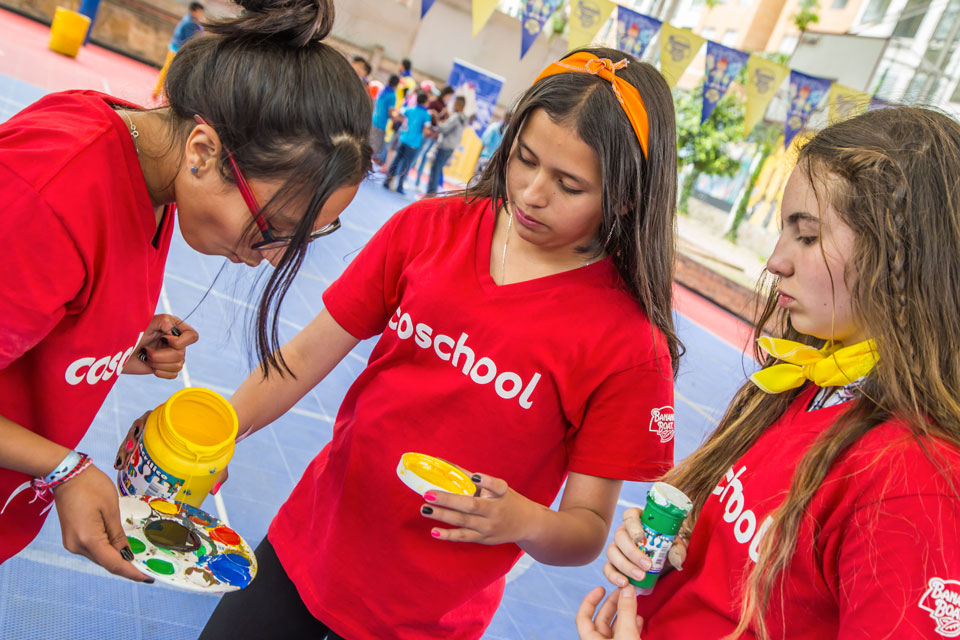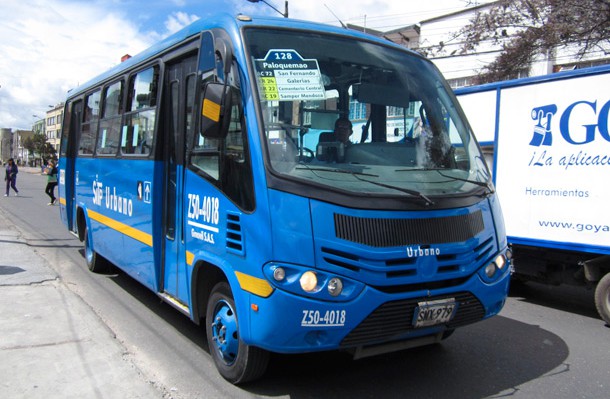
Co-School focuses on teaching the necessary social and emotional skills people need to develop, as well as leadership skills Photo: Co-School
An imaginative approach to education mixes kids from different backgrounds and encourages them to work on their social and emotional skills as much as academic ones.
Co-School works to educate young people in Colombia by using a non-traditional education system that integrates students from all social and economic backgrounds with the intention of breaking down the gap between social classes.
Co-School works towards a vision that seeks to generate change in the education system, focussing on teaching the necessary social and emotional skills people need to develop, as well as leadership skills. This encourages students to see themselves as agents of change in society. Additionally, Co-School wants to connect young people with different realities so that they can feel, think and act in a more collective way.
Henry May, CEO and co-founder of Co-School, said: “By working on these skills with these kids, we’re preventing them from getting involved with gangs and bad situations. We see students that often in school don’t know where they’re going. Co-School helps them discover their true passion, guides them. We empower them, light an inner fire in them.”
Unlike other organisations, Co-School doesn’t have to ask for donations because it has a partnership with suntan lotion company Banana Boat. It’s good for both, as Co-School will help Banana Boat with the company’s social commitment, and Banana Boat funds Co-School.
Campco
Co-School offers different programs that are focused on education with a socio-emotional emphasis. Campco, for example, consists of a two-week summer camp where students from public and private schools get to work together during their holidays.
Kids from fifth to eleventh grade participate, and through storytelling they learn English and mathematics as well as leadership, social and emotional skills. However, Co-School doesn’t want to overwhelm students by teaching them maths in the traditional way. Instead, they introduce maths as astronomy so that it’s more engaging and fun.
Co-School also uses Colombian geography and biodiversity to teach students non-tangible skills. They’ve created a story of a native tribe in Colombia that is influenced by four animal spirits and is led by two brothers and two sisters. The leaders compete on their own instead of working as a team and when they cheat, the gods punish them by sending each to a different corner of Colombia.
Each of the brothers and sisters has a special skill. The idea at Campco is that the kids have to bring the leaders back, but first they must develop the skills that each of the siblings represents: resilience, empathy, self-knowledge and leadership.
Martin Aguirre, who has been a mentor at Campco for two years, said the program has opened his mind in many ways and that the best twist they have is that they offer a re-imagined education.
“It’s a very transformative experience as well as meaningful, not only for the kids, but also for us the mentors,” Aguirre said. “No matter where you come from, we all have good qualities.”
Students are expected to give the best of themselves and mentors expect no tribe to be better than the other. A non-competitive environment is highly emphasised as the idea is for the kids to start viewing the world in a collective way.
“The idea of storytelling is to create a different world to teach students something different,” May said.
Related: Intern Colombia: Interning internationally
He said it was very important for the Colombian education system to work more on social and emotional skills, especially if we want to build a country in peace. He also said that long-term vision in education is key, as well as bilingualism and fair pay to teachers. “If you don’t improve teaching, and pay them better, nothing’s going to happen,” May said.
Campco takes place in different private schools that work with Co-School. “The “Co” in Co-School means collaborative schools,” May said. “When you involve people from different backgrounds it creates a powerful tool.”





